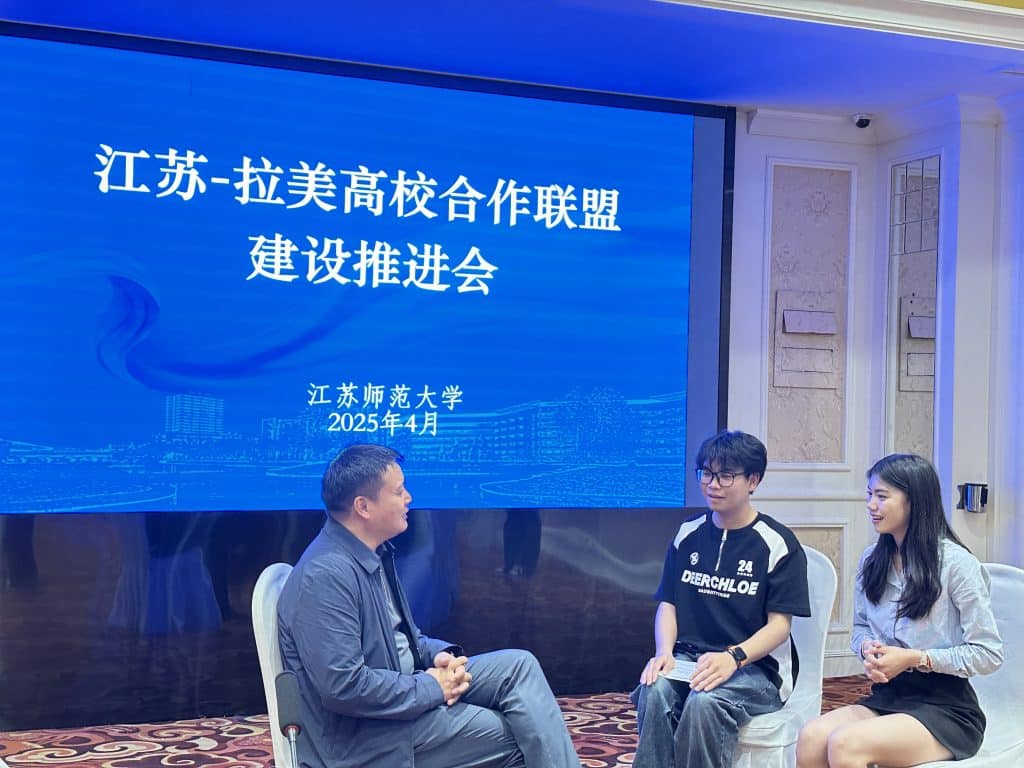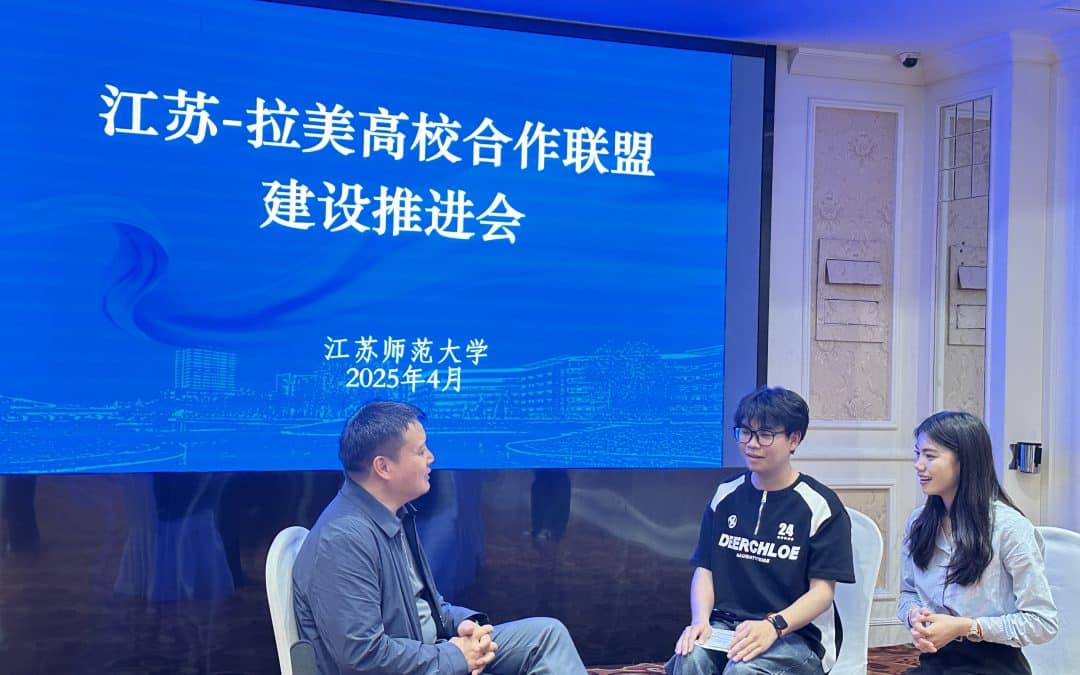Youth Research: Unveiling the Real Emotional Currents

At the School of Foreign Languages, Jiangsu Normal University, a group of students is quietly conducting a groundbreaking cross-cultural research project. Titled From «Eastern Visitors» to «Fellow Travelers of Destiny» — A Decade-Long Discourse Analysis and Survey Verification Based on 2,103 Civilizational Dialogue Envoys Across 16 China-Latin America Countries, the project tackles a profound yet simple question: After years of civilizational exchanges between China and Latin America, has mutual understanding and acknowledging truly reached the heart?
The research is supported by the China-Latin America Humanities Exchange Base at Jiangsu Normal University, a key platform for advancing international communication capabilities among universities in Jiangsu Province. The base focuses on language and cultural exchanges, youth dialogue mechanisms, and cognitive mapping between China and Latin America.
Initiated and independently organized by the student team, the project received guidance from academic experts. From questionnaire design and pre-test adjustments to sample screening and data modeling, students handled every step. So far, 458 valid questionnaires have been collected, covering diverse groups such as youth communicators, cultural practitioners, international students in China, journalists, and corporate employees.
Surface Consensus Masks Emotional Rifts
Findings reveal that approximately 83% of respondents expressed being «generally satisfied» or «basically satisfied» with China-Latin America exchanges, while 61% agreed that «China respects rather than dominates local cultures.» However, nuanced tensions emerged in specific areas:
43% of respondents believed cultural conflicts «may» or «likely will» intensify.
Concerns about «asymmetrical political cooperation» scored an average of 3.74 out of 5.
Apprehensions over «long-term dependency in technological collaboration» reached 3.58.
In contrast, attitudes toward technological cooperation were notably positive, scoring 4.2. Many Latin American youths emphasized: «We trust tangible, usable innovations more than abstract systems.» The team dubbed this phenomenon «realistic trust»—cultural appreciation takes time, but technology changes lives first.
Communication Must Resonate: Youth as Bridges
In open-ended responses, participants shared their visions for ideal civilizational exchanges. One wrote: «Understand China through friends,» while another stressed: «I hope exchanges are not always organized by the state, but that we can decide how to engage ourselves.»
A Peruvian respondent noted: «I love Chinese films, but I want to know who decides what we see.» This casual remark, the team realized, reflects deeper concerns about agency in cultural interactions.
The research also highlighted youth’s strong willingness to participate in creative, emotionally resonant platforms—such as short videos, cultural festivals, and student exchange programs—to foster authentic dialogue.
Next Steps: From Data to Action
The team recommends shifting civilizational communication from «symbolic displays» to «story co-creation,» and from «content delivery» to «emotional engagement.» Future phases will expand sample coverage, analyze Sino-Latin language discourse differences, and develop a «China-Latin America Civilizational Empathy Index.»
The project aims to translate findings into policy recommendations and youth-driven communication guidelines. As the team leader stated: «We will continue using data, emotion, and action to write credible footnotes for a new chapter in China-Latin America ‘fellow travelers of destiny.'»
(By Lei Zhenquan, Xuanqi)

